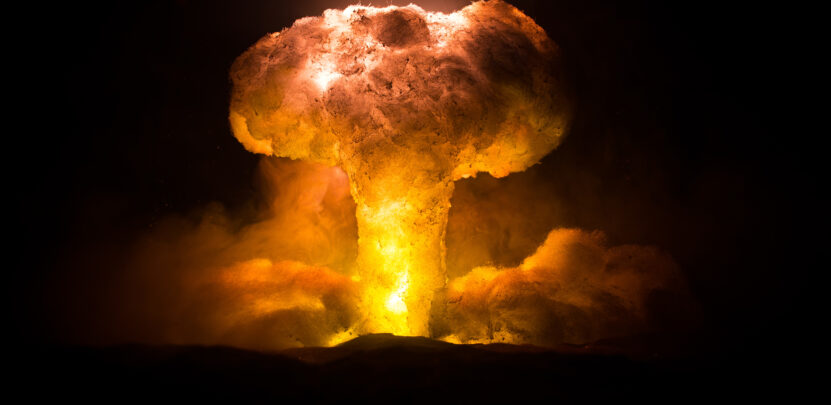
Webinar: Nuclear Threats after the Ukraine War
- 27 April 2022
- 12:00pm – 1:0pm
- Online
- https://dajf.org.uk/event/nuclear-threats-after-the-ukraine-war
- 020 7486 4348
- events@dajf.org.uk
- Tweet
If it escalates, the Ukraine war could lead to a new wave of nuclear weapons proliferation and threats globally. Soon after the beginning of the war, in an attempt to dissuade the West from intervening further in the conflict, Russia asserted its right to use nuclear weapons in Ukraine, prompting Europe to re-think its security architecture. These security concerns also extend to the Asian region. Could these concerns trigger a new nuclear arms race? In this webinar, the experts will discuss current challenges in the international security arena, and their implications for future global security architecture and the proliferation of nuclear weapons.
This webinar will address the following questions:
- What is deterrence and what role does it play in security?
- How do we think about multi-polar deterrence/hub-and-spoke deterrent relationships in Asia (US-Russia, US-China, US-DPRK, ROK-DPRK, China-India, India-Pakistan)?
- What concerns does Japan have about its security in the present context?
- How can NATO and the US’s Asian allies respond to China’s and DPRK’s growing missile and nuclear arsenals?
- How can NATO and the US’s Asian allies respond to new security challenges posed by emerging and disruptive technologies?
- How can we manage missile and nuclear proliferation in Asia?
- What can Asia learn from the use of nuclear threats and large-scale missile uses in the Ukraine war?
- Is there a role for arms control in Asian security, and are there lessons from the Cold War on risk reduction and arms control?
About the contributors
Gideon Rachman
Gideon Rachman (chair) is chief foreign affairs commentator for the Financial Times. He writes a weekly column for the FT and hosts an international-affairs podcast. His main interests include geopolitics in Asia, US foreign policy and the future of the EU. Rachman has won the Orwell Prize for journalism (2016) and was also named commentator of the year in the European Press Prize awards in 2016. He has written two books on international politics – Zero-Sum World (2011) and Easternisation (2016). He is also a regular public speaker, appearing before both academic and business audiences.
William Alberque
William Alberque is Director of Strategy, Technology, and Arms Control at the International Institute for Strategic Studies in Berlin, focusing on preventing the proliferation of nuclear weapons, weapons of mass destruction and related delivery systems, as well as risk reduction and arms control. He is the former Director of the NATO Arms Control, Disarmament, WMD Nonproliferation Centre (2012-2020), and previously served in the US Department of Defense, Department of Energy, State Department, and Defense Threat Reduction Agency, working on European and East Asian security, CBRN defense, nuclear material security, disaster response, and nuclear safeguards.
Yoko Iwama
Yoko Iwama is a Professor at the National Graduate Institute for Policy Studies (GRIPS) in Tokyo, where she is Director of the Security and Strategy Programme and the Maritime Safety and Security Programme. She graduated from Kyoto University in 1986 and subsequently also gained a PhD in Law there. Having served as a Research Assistant at Kyoto University (1994–97), a Special Assistant at the Japanese Embassy in Germany (1998–2000), and Associate Professor at GRIPS (2000-9), she was appointed Professor at GRIPS in 2009. She was a student at the Free University of Berlin between 1989 and 1991, during which period she experienced the fall of the Berlin Wall and the reunification of Germany.
